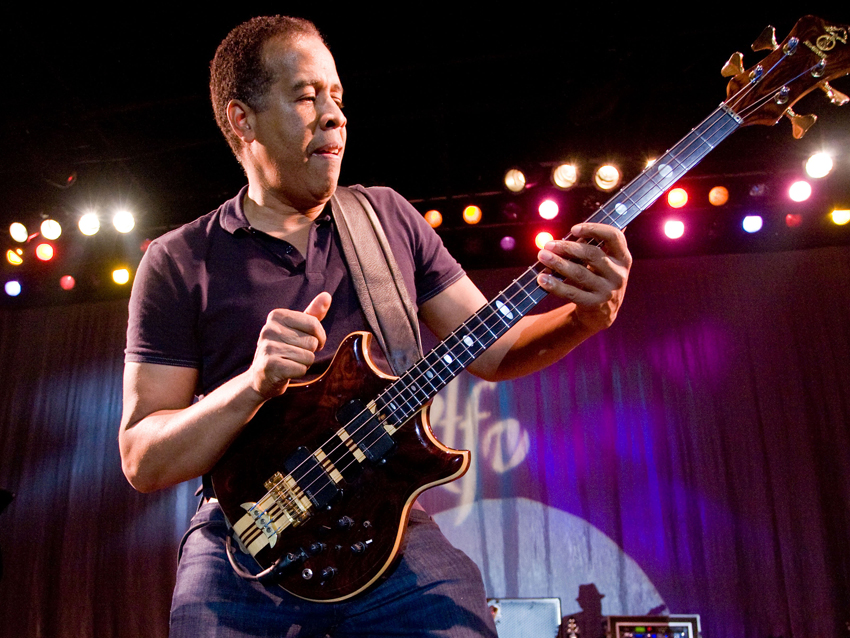
Interview: bass legend Stanley Clarke on his early solo albums
“I had come to New York to be a jazz musician in the early '70s," says bass legend Stanley Clarke. "I played with Horace Silver, Art Blakey, Stan Getz, Dexter Gordon, Joe Henderson – lots of great artists. I was playing mainly acoustic bass; I didn’t play much electric bass until the group Return To Forever developed.
“My solo albums developed from my playing with that band. The first Return To Forever records were acoustic, but then we had an electric period. Playing the electric bass was completely different for me, like going from the piano to the trumpet – two different worlds.
“My approach to the bass on these records was further away from the traditional jazz I had previously played. A lot of it was rock, it’s loud, very intense. It was fun making them. I had free reign to do whatever I wanted, and people bought them, too. Not many instrumental bass players can hang gold records on the wall.
“In many ways, making these albums was one very large experiment, but it’s one that worked. It’s interesting to look back and listen to them now. They have lots of energy, passion, honesty - they’re cool. Whether or not I’m a pioneer, which I’ve heard, that’s not up for me to say. I was just trying to put a point of view across.”
On the following pages, Stanley Clarke reflects on his early solo works, records which are now part of a six-disc set called Stanley Clarke: The Complete 1970s Epic Albums Collection from Sony/Legacy Recordings.
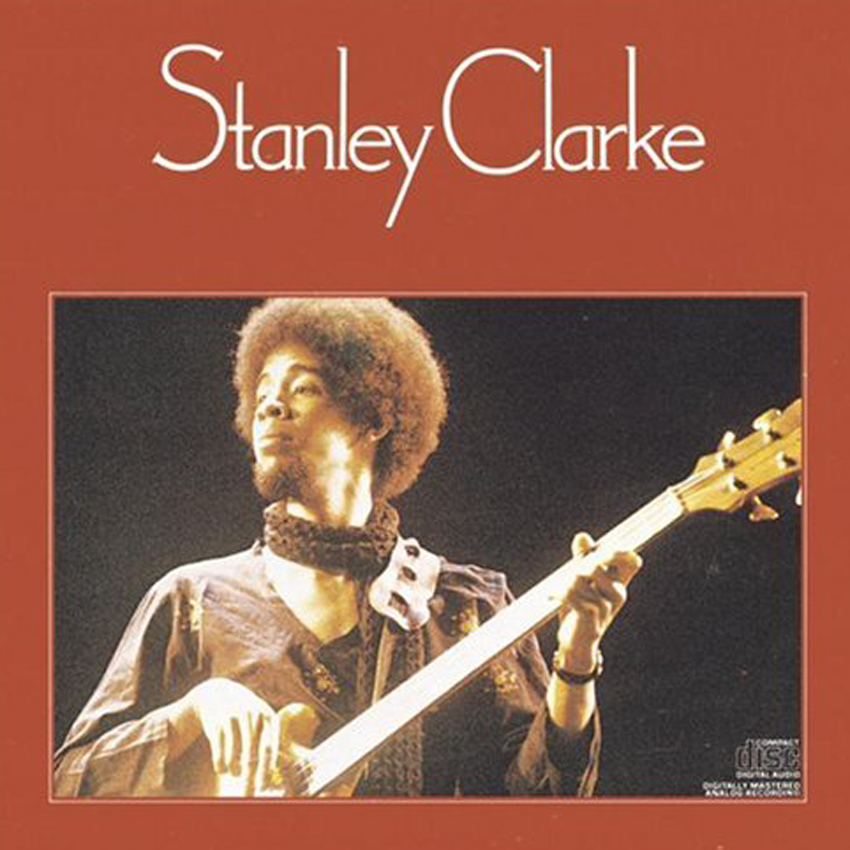
Stanley Clarke (1974)
“This is the first of my real electric albums, so it’s me making a statement. It has some orchestral moments on the second side, so there is some acoustic bass.
“I really like the sound – it’s rich and full and vibrant. A lot of people from different genres of music got into this one. I remember Ahmet Ertegun from Atlantic Records called me up to his office because he wanted to know who I was, a jazz musician who sold over 100,000 records. We were friends ever since then.
“I played my old Alembic bass on it. There were only 10 of them made at the time. It was a beautiful instrument that was eventually stolen, unfortunately.”
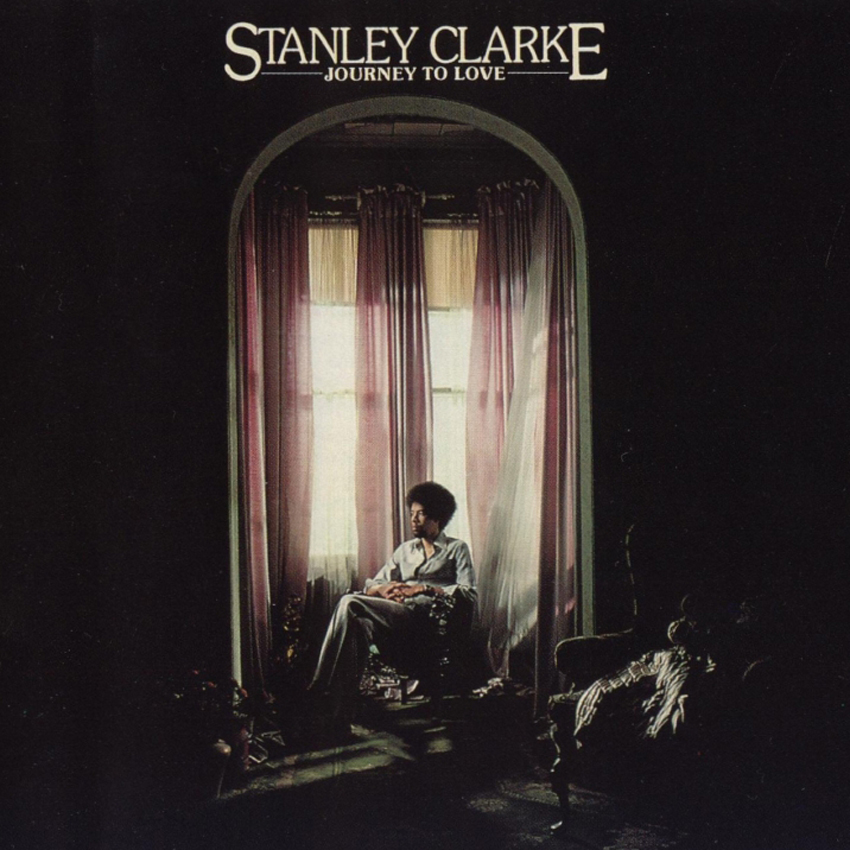
Journey To Love (1975)
“This is a cool record and a special one to me, because it started my relationship with Jeff Beck. After my first album came out, Jeff came out to my house in Long Island. He drove up, got out of his car with his long hair and everything, and told me that he was playing one of my songs, Power, in his life shows. He wanted to record with me.
“It’s a fun, funky record, and I had a great time making it. Lots of cool playing, and it was new, too – I was exploring different bass sounds on my Alembic, putting the bass way out front. You can really hear it on this record.
“Jeff exposed me to a lot of rock, and I did the same for him with jazz. A great guy, and a heck of a musician.”
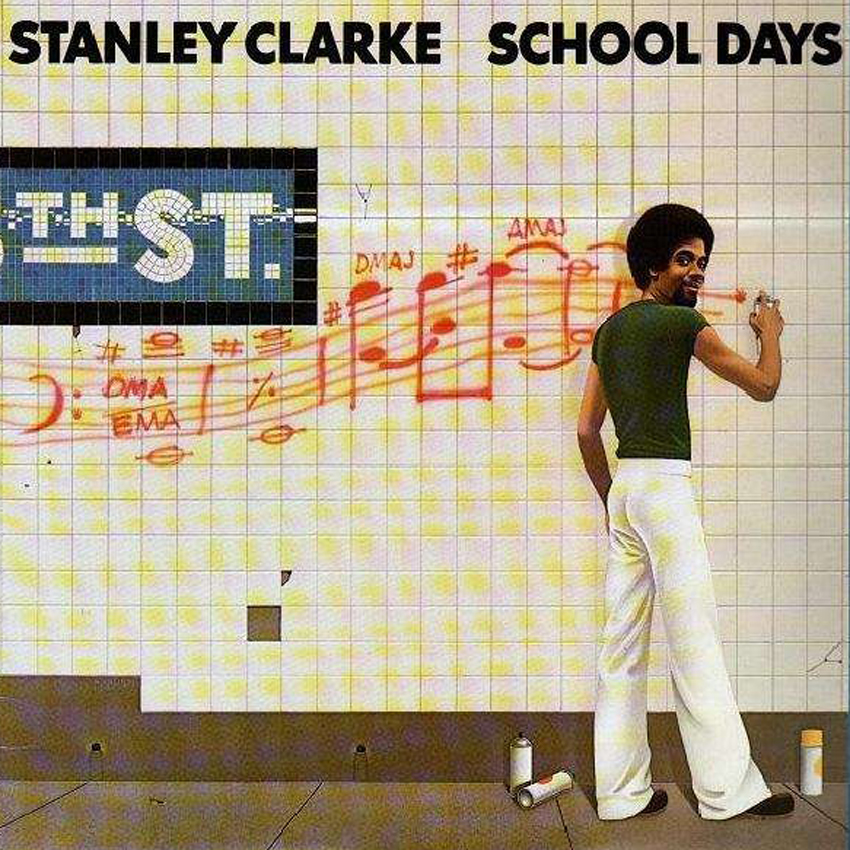
School Days (1976)
“One of my friends said that everyone should have a ‘career song,’ and I would say that School Days might be just that for me. It’s kind of a bass anthem. Wherever I go and play, anywhere in the world, people still want to hear that song.
“We made the album quickly. Most songs were one or two takes – we moved fast. I really dug in and played kind of raw. I remember during one of the songs, the engineer at Electric Lady said to me, ‘Now, that’s a bass solo!’ I was going for it.
“Of all my albums, this one has the most attitude. I wasn’t really angry or anything, but my playing was fierce and unapologetic. I was very passionate about what I was doing. Maybe that’s why this has been one of my biggest sellers.”
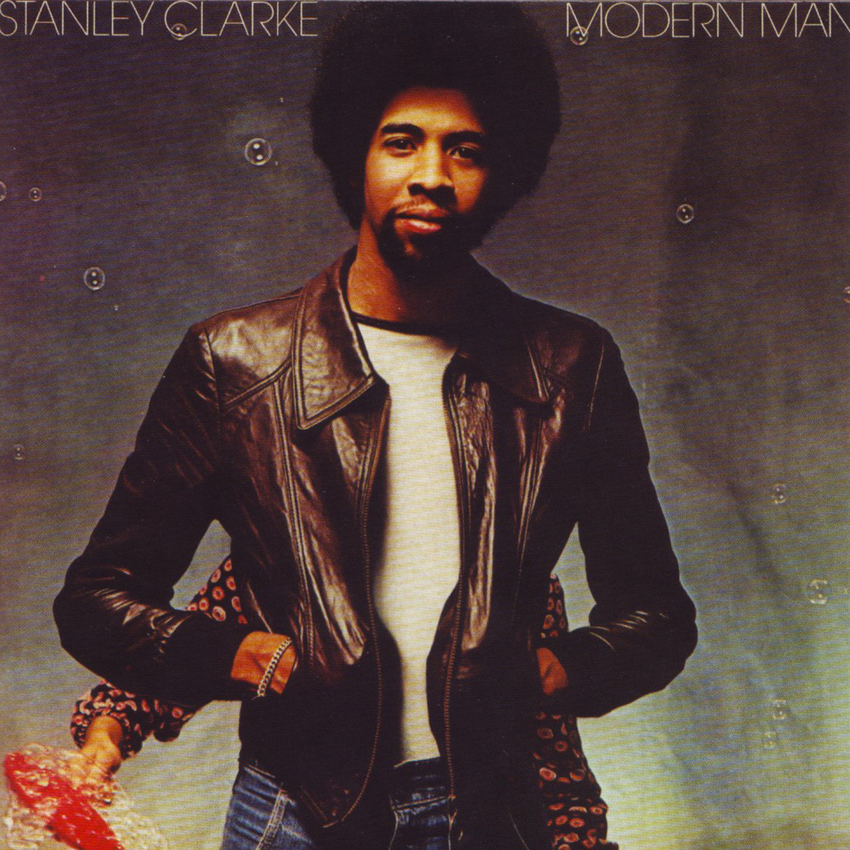
Modern Man (1978)
“After School Days, I started to mellow out a little. Modern Man is a sweet album. I remember there were a lot of people from different genres who were coming to me and wanted to play, so this record reflects that – it’s me just hanging out with friends, very relaxed, very warm.
“The drummer Jeff Porcaro plays on the album. He was kind of like the West Coast’s Steve Gadd – such a responsive musician who always knew just what to do.
“I probably didn’t push myself in any kind of conscious way on Modern Man. I was just enjoying the freedom I had and the good times with all of the other musicians. That’s what I recall the most when I think of this record – the beautiful memories.”
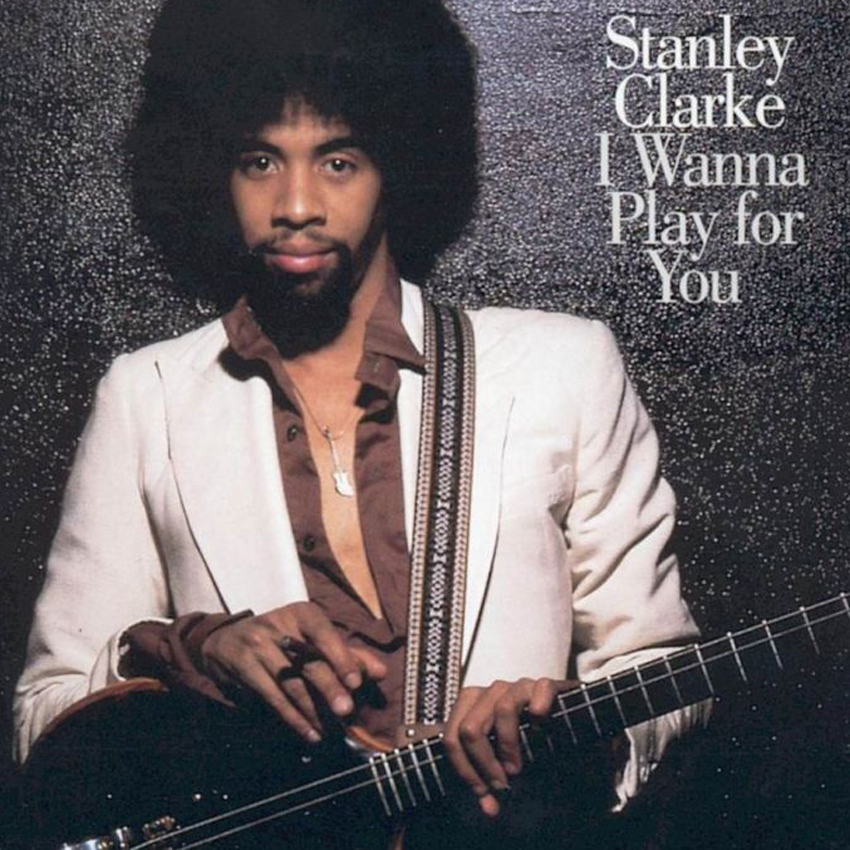
I Wanna Play For You (1979)
“This record’s wild. By this point, some critics were complaining that my albums were a little mismatched and kind of thrown together, and I’m probably guilty of all that here, too. I wasn’t bound to a format. I liked a lot of different things, different styles, different players – I didn’t see why I had to do just one thing.
“On the drums I had both Jeff Porcaro and Stevie Gadd, so I got the best of both worlds. We had a blast. The title kind of says it all: I wanted to play.
“Contrary to what some people might think, I was never intentionally trying to push myself technically. I wasn’t one of those guys who picked apart a B minor scale and tried to figure out everything you could do with it. I just liked to be inside the music and respond to what other people were doing. You can hear that on this record. I had reached an apex and I was having fun.”
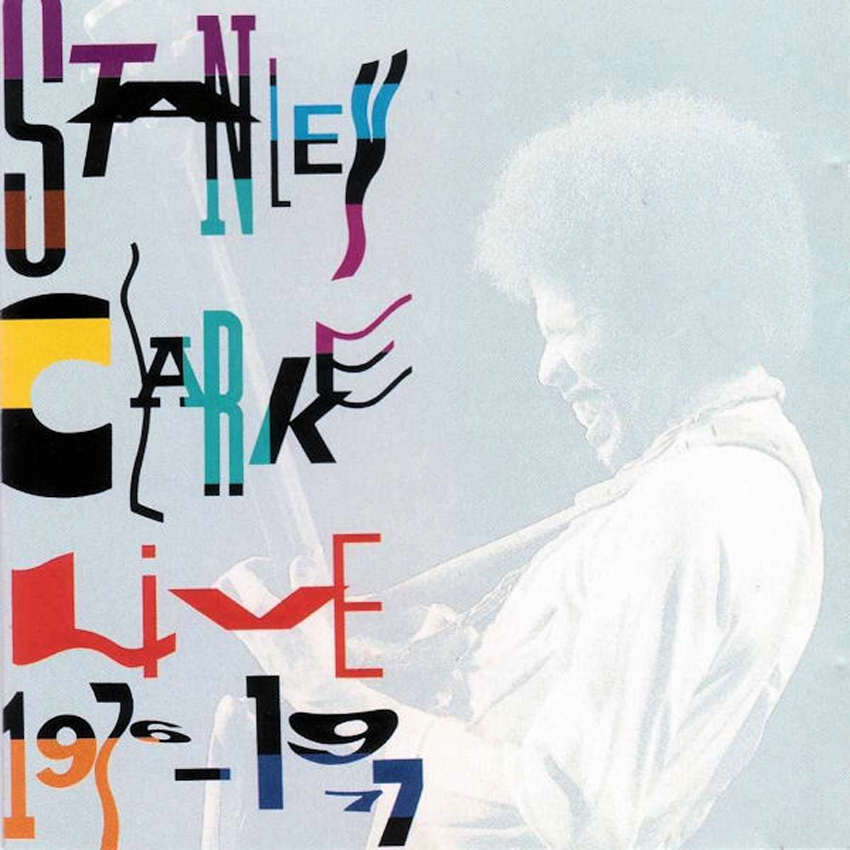
Live 1976-1977 (released in 1991)
“By now, I was very comfortable with where I was and what I had achieved, and I felt good that there were other bass players on the scene. I loved what Jaco was starting to do – he and I were very close.
“This is my favorite record. I was playing in front of 3,000, 4,000 people a night, throwing out tee-shirts, all that stuff, like at any rock show. I had gold records, sold-out concerts. I was on top of the world. This record captures me at that high.
“I was spreading the word that there was more to music than just four chords. The performances here are cool. I’m playing Stanley Clarke music. There’s a spirit, a sense of joy. That’s what people want to hear, and they still do. It blows my mind!”
Joe is a freelance journalist who has, over the past few decades, interviewed hundreds of guitarists for Guitar World, Guitar Player, MusicRadar and Classic Rock. He is also a former editor of Guitar World, contributing writer for Guitar Aficionado and VP of A&R for Island Records. He’s an enthusiastic guitarist, but he’s nowhere near the likes of the people he interviews. Surprisingly, his skills are more suited to the drums. If you need a drummer for your Beatles tribute band, look him up.
